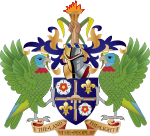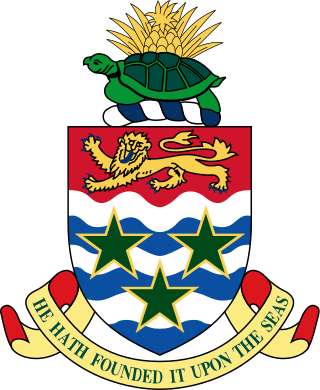| |||||||||||||||||||
All 17 seats in the House of Assembly 9 seats needed for a majority | |||||||||||||||||||
|---|---|---|---|---|---|---|---|---|---|---|---|---|---|---|---|---|---|---|---|
| |||||||||||||||||||
 | |||||||||||||||||||
| |||||||||||||||||||
 |
|---|
| Administrative divisions (Quarters) |
General elections will be held in Saint Lucia in or before 2026 to elect all 17 members of the House of Assembly.
| |||||||||||||||||||
All 17 seats in the House of Assembly 9 seats needed for a majority | |||||||||||||||||||
|---|---|---|---|---|---|---|---|---|---|---|---|---|---|---|---|---|---|---|---|
| |||||||||||||||||||
 | |||||||||||||||||||
| |||||||||||||||||||
 |
|---|
| Administrative divisions (Quarters) |
General elections will be held in Saint Lucia in or before 2026 to elect all 17 members of the House of Assembly.
The Saint Lucia Labour Party won a landslide victory in the 2021 elections, winning 13 of the 17 seats in the House of Assembly, resulting in Philip J. Pierre becoming Prime Minister. The United Workers Party led by Allen Chastanet was reduced from eleven to two seats, while independents won the remaining two seats.
The 17 elected members of the House of Assembly are elected by first-past-the-post in single member constituencies. [1]
According to the constitution, elections for a new Parliament session can be held at the latest five years and 90 days after the opening of the previous session. The first session after the 2021 election was held on 17 August 2021, [2] leaving the deadline for the next elections as November 2026.

Politics of Saint Lucia takes place in the framework of an independent parliamentary democratic constitutional monarchy, with King Charles III as its head of state, represented by a Governor General, who acts on the advice of the prime minister and the cabinet. The prime minister is the leader of the majority party of the house, and the cabinet conducts affairs of state. The Governor General exercises basically ceremonial functions, but residual powers, under the constitution, can be used at the governor general's discretion. The actual power in St. Lucia lies with the prime minister and the cabinet, usually representing the majority party in parliament.
Politics of Saint Vincent and the Grenadines takes place in the framework of a parliamentary democracy. Saint Vincent and the Grenadines is an independent Commonwealth realm, with Charles III as its king, represented by a governor-general, who acts on the advice of the prime minister and the cabinet. The prime minister is the leader of the majority party of the House of Assembly, and the cabinet conducts affairs of state. The governor-general exercises ceremonial functions, but reserve powers, under the Saint Vincent and the Grenadines constitution, can be used at the governor-general's discretion.

The Parliament of the Republic of South Africa is South Africa's legislature; under the present Constitution of South Africa, the bicameral Parliament comprises a National Assembly and a National Council of Provinces. The current twenty-seventh Parliament was first convened on 22 May 2019.

The Victorian Legislative Council (VLC) is the upper house of the bicameral Parliament of Victoria, Australia, the lower house being the Legislative Assembly. Both houses sit at Parliament House in Spring Street, Melbourne. The Legislative Council serves as a house of review, in a similar fashion to its federal counterpart, the Australian Senate. Although, it is possible for legislation to be first introduced in the Council, most bills receive their first hearing in the Legislative Assembly.

The Parliament of Pakistan is the federal and supreme legislative body of Pakistan. It is a bicameral federal legislature that consists of the Senate as the upper house and the National Assembly as the lower house. According to the Constitution of Pakistan, the President of Pakistan is also a component of the Parliament. The National Assembly is elected for a five-year term on the basis of adult franchise and one-man one-vote. The tenure of a Member of the National Assembly is for the duration of the house, or sooner, in case the Member dies or resigns. The tenure of the National Assembly also comes to an end if dissolved on the advice of the Prime Minister or by the president in his discretion under the Constitution.

Elections in Portugal are free, fair, and regularly held, in accordance with election law.

Elections in Malaysia include elections to public office of the political entities that since 1963 have composed the federation of Malaysia. At present, elections in Malaysia exist at two levels: federal level and state level. Federal level elections are those for membership in the Dewan Rakyat, the lower house of Parliament, while state level elections are for membership in the various State Legislative Assemblies. The heads of executive branch at both the federal and state levels, the Prime Minister and Menteri Besar/Chief Ministers respectively, are indirectly elected, usually filled by a member of the majority party/coalition in the respective legislatures.

Elections in Saint Lucia gives information on election and election results in Saint Lucia.

The National Assembly is the unicameral parliament and legislative body of the Republic of Bulgaria.

Sarah Flood-Beaubrun is a Saint Lucian lawyer and politician. Beaubrun is the former representative for the constituency of Castries Central in the House of Assembly. Beaubrun lost her seat in the 2021 Saint Lucian General Election dubbed a landslide victory for the Saint Lucia Labour Party.

The Parliament of Ghana is the legislative body of the Government of Ghana.

The House of Assembly is the lower house of the Parliament of Saint Lucia, elected by popular vote. The upper house is the Senate. It has 17 or 18 members: 17 members elected for a five-year term in single-seat constituencies, and a speaker elected by the 17 members, who may be one of their number or a person chosen from outside the House. To be elected to the house, a person must be at least 21 years old.

The Legislative Assembly, also known as the Parliament of Samoa, is the national legislature of Samoa, seated at Apia, where the country's central administration is situated. Samoan Parliament is composed of two parts: the O le Ao o le Malo and the Legislative Assembly.

The House of Assembly is the lower house of the Parliament of the British Overseas Territory of Bermuda. The house has 36 Members of Parliament (MPs), elected for a term of five years in single seat constituencies using first-past-the-post voting. Bermuda now has universal voting with a voting age of 18 years. Voting is non-compulsory. The presiding officer of the House is called the Speaker.

The Parliament of the Cayman Islands is the unicameral legislature of the British Overseas Territory of the Cayman Islands. It is composed of 21 members; 19 elected members for a four-year term and two members ex officio.
A joint session or joint convention is, most broadly, when two normally separate decision-making groups meet, often in a special session or other extraordinary meeting, for a specific purpose.

The 2022 South Australian state election was held on 19 March 2022 to elect members to the 55th Parliament of South Australia. All 47 seats in the House of Assembly, and half the seats in the Legislative Council were up for re-election.

General elections were held in Saint Lucia on 26 July 2021, having been constitutionally required by 12 October 2021. Voters elected all 17 members of the House of Assembly. The result was a victory for the opposition Saint Lucia Labour Party, which won 13 of the 17 seats in the House, while the ruling United Workers Party lost nine of its eleven seats. It was the fourth consecutive election in which the incumbent government lost.

General elections were held in Barbados on 19 January 2022 to elect the 30 members of the House of Assembly. The ruling Barbados Labour Party won all 30 seats for the second consecutive election.

The 61st Victorian state election is expected to be held on 28 November 2026 to elect the 61st Parliament of Victoria. All 88 seats in the Legislative Assembly and all 40 seats in the Legislative Council will be up for election, presuming there are no new electorates added in a redistribution.